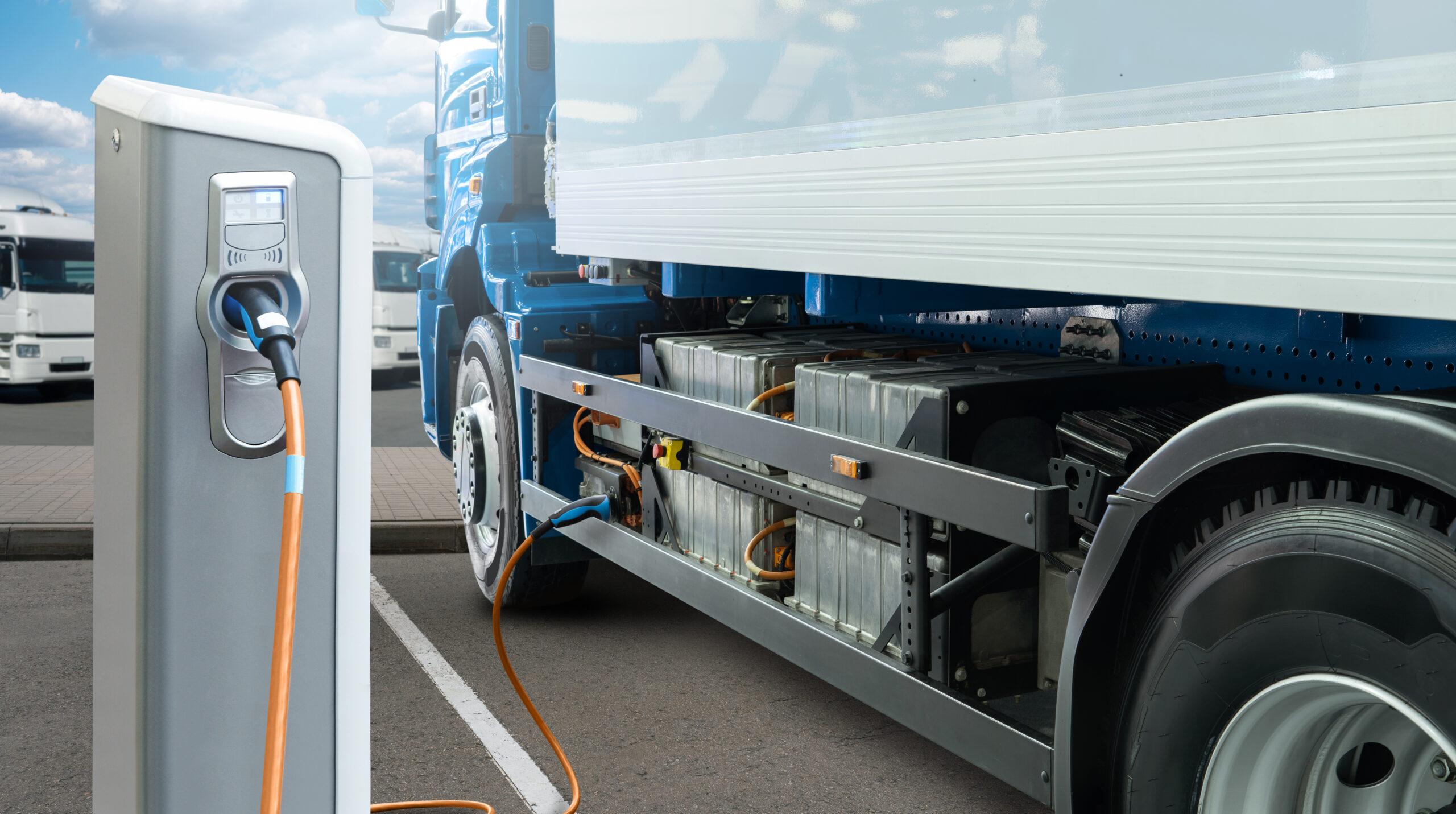The electric trucking industry is on the cusp of a transformative shift as electric trucks and electric vehicles (EVs) emerge as a practical and sustainable option for fleets. In fact, 90% of fleet managers believe that the widespread adoption of electric vehicles in the commercial fleet industry is not just a possibility but an inevitability. As the industry moves towards a greener future, fleet operators are recognizing the long-term benefits of electric trucks, to align with corporate or regulatory goals.
Advances in EV technology can lower operating costs too, making electric trucks an attractive, economical alternative to diesel trucks for fleet managers.
In this article, we’ll explore how electric vehicles are expected to reshape the industry and the key factors driving their adoption among fleets.
Factors driving the adoption of electric trucks among fleets
The factors driving the adoption of electric vehicles among fleets fall under two major categories — external factors and internal motivations.
The biggest external factor pushing fleets to switch from diesel trucks to electric trucks is reducing carbon emissions. This could stem from a company’s own initiative to go green or to comply with government regulations. Many governments worldwide are implementing stricter emissions standards to combat climate change and reduce greenhouse gases and fossil fuels. Policies such as low-emission zones and encouraging the use of zero-emission trucks are encouraging fleet operators to transition to electric trucks.
California Air Resources Board’s Advanced Clean Truck Regulation is a prime example of government regulations encouraging fleets to choose zero-emission vehicles. In 2020, California adopted the Advanced Clean Truck Act (ACT) to address its greenhouse gas emissions. To date, six other states have also adopted this rule including Washington, Oregon and New York. ACT requires original equipment manufacturers (OEMs) of medium and heavy-duty trucks to sell zero-emission vehicles (ZEVs) or near-zero-emissions vehicles (NZEVs) as an increasing percentage of their annual sales from 2024 to 2035.

Internal motivations for fleet electrification
There are several internal motivations that could stimulate the adoption of electric trucks among fleets in the coming years, fleet managers need to be able to present a strong business case based on the following:
- Fuel cost reduction
- Maintenance cost reduction
- Overall operational cost reduction
While there are fleet companies that are showing a growing consciousness about their impact on the environment, the adoption of electric vehicles in this sector would speed up knowing how the switch would affect their bottom line. As explained by Gio Sordoni, COO and co-founder of Thor Trucks, “We don’t expect anyone to buy electric trucks because they’re worried about the environment or because they want to be nice. The beauty of these trucks is that fleets will be making the decision to deploy them based on bottom-line dollars and cents. There is a strong economic argument for the use of battery-electric trucks today.”
The initial numbers are promising. According to digital transformation advisory firm ARC, electric cars record lower per-mile energy costs versus traditional commercial vehicles that run on gas in three of the key markets with the highest electrification among fleets: Europe, China, and the United States.
We’ve written about some of the decisions that fleet managers need to consider this this post – ICE, Hybrid, or Electric Fleet Vehicles? There are several internal motivations that could
In addition to the money saved from reduced energy consumption, fleets can also cut down on their maintenance expenses. Fleets with electric vehicles don’t need to worry about spending on the following, just to name a few:
- Oil filters and oil changes
- Engine sludge
- Fuel injector cleaning and fuel filters
- Ignition coils and spark plugs
- Air intake filters, catalytic converter, timing belt, and muffler
Everything considered, it seems like fleets are moving toward an electric-powered future. Now the question is, how is this going to affect fleet management?
How electric vehicles will affect fleet management
All the fundamentals of managing a fleet of trucks that run on petrol will still be applicable in managing a fleet of electric vehicles. Fleet managers still need to monitor driver behavior and potential maintenance issues for preventive measures. Safety, efficiency, and delivery and dispatch management still need to be prioritized.
The main difference will be seen in two key areas.
First, the metrics that fleet managers need to monitor are around the total cost of ownership. It’s important to monitor charging costs (particularly for long distances) compared to gas prices, battery life, and electricity rates (off-peak versus peak hours). Sourcing telematics and fleet management solutions providers who can keep track of this data is vital.
Second, fleet managers need to identify the next steps and optimization opportunities for their newly acquired electric trucks. For instance, there’s a lot of talk about how the electric truck market will pave the way for fully autonomous vehicles (such as self-driving trucks), which would hopefully maximize productivity and driver safety.
Full Speed Ahead to an Electrified Future
Due to pressures from the government to cut the transport industry’s carbon emissions and the promise of cost savings, it appears that switching to electric vehicles seems to be an inevitable next step in the evolution of the trucking sector. Fleet managers should take into consideration both external factors and internal motivations. Changes in fleet management strategies also need to be considered as well as creating a transition plan to electric vehicles.
If you want to keep ahead of the technology curve and prepare for a tech-savvy future, reach out to us by filling out the form on your right-hand side!
Here is another article that you might like to read: Why Add Electric Vehicles to Your Fleet








